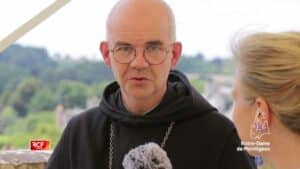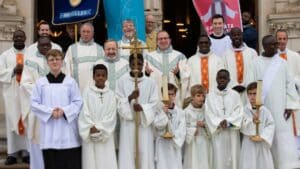What does the Church have to say about the salvation of children who died unchristened?

Many bereaved parents whose infant died unchristened wonder about their outcome. Regardless of the cause of the death (miscarriage, abortion or stll-birth), can a child be saved if they were not christened? What is the Church's official position on the salvation of infants who died before they had a chance to receive baptism? We asked dom Jean Pateau, the abbot at Notre-Dame de Fontgombault, who wrote "Le Salut des enfants morts sans baptême" [The salvation of children who died unchristened"] (Artège, 2017).








